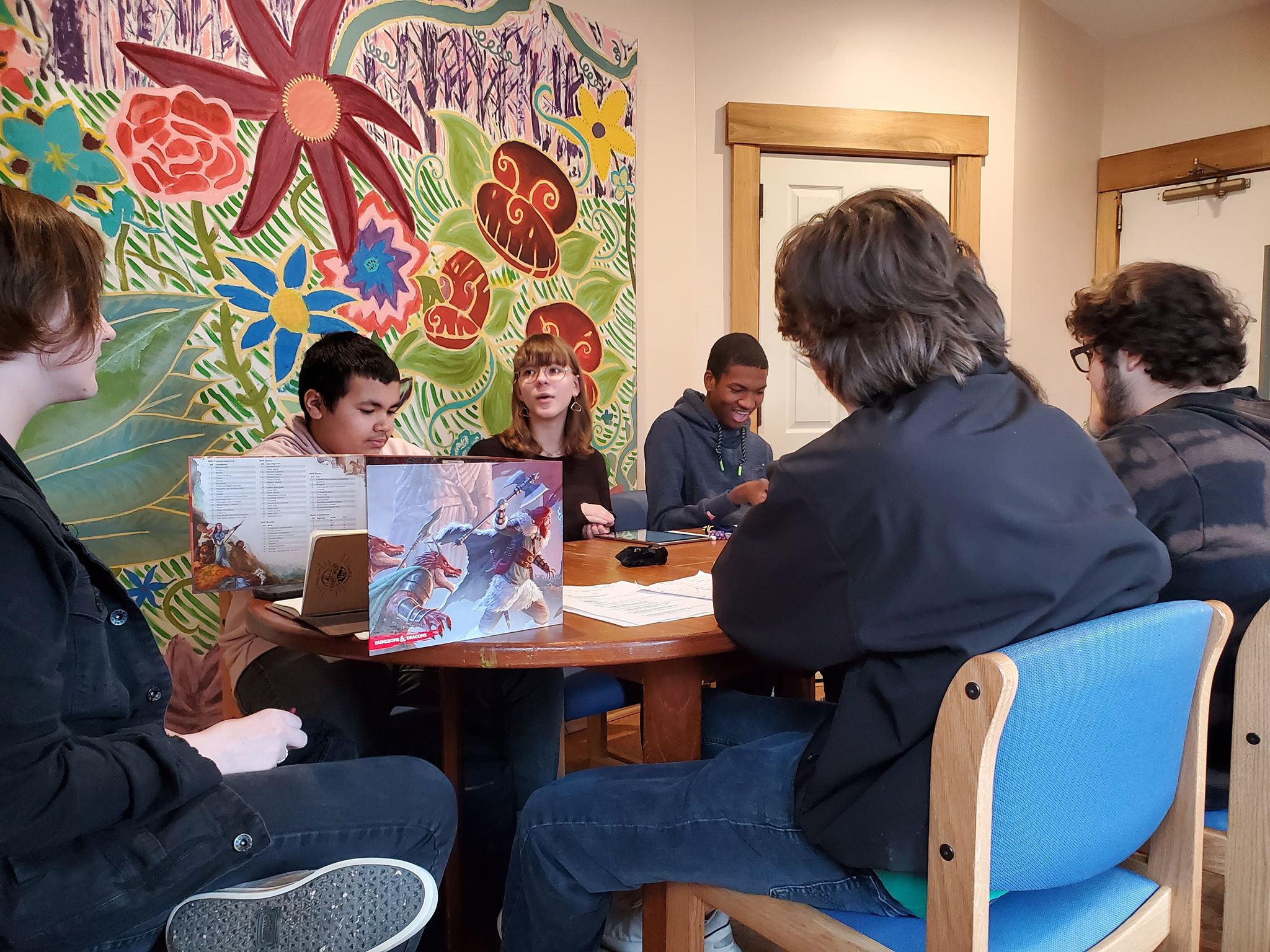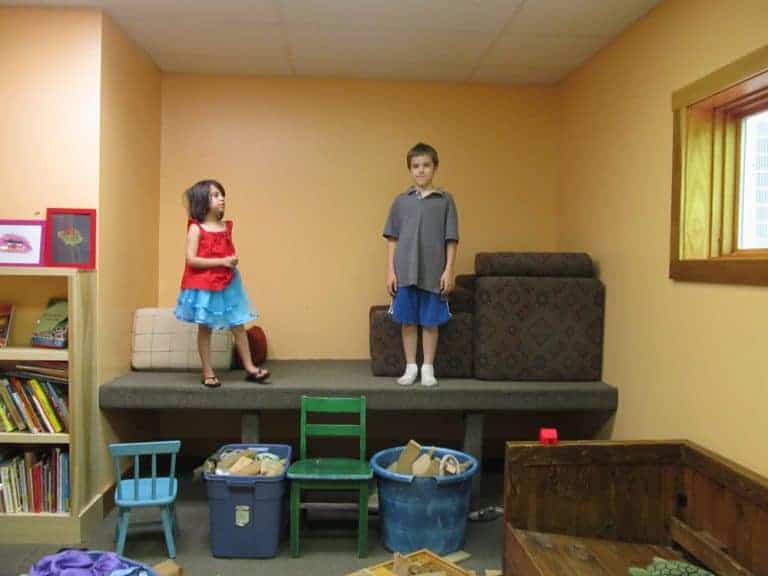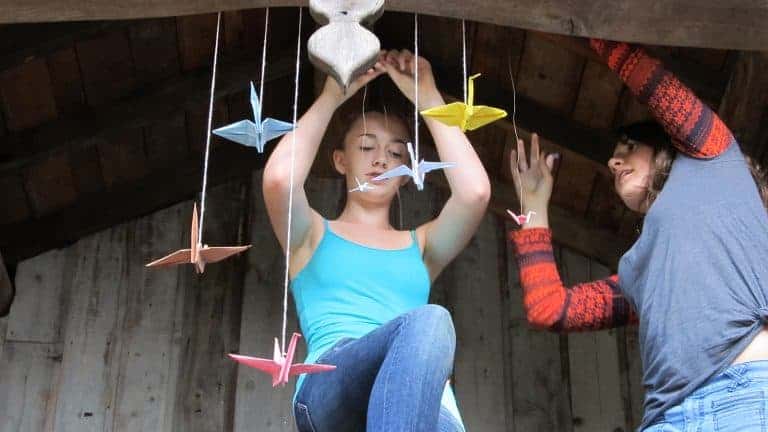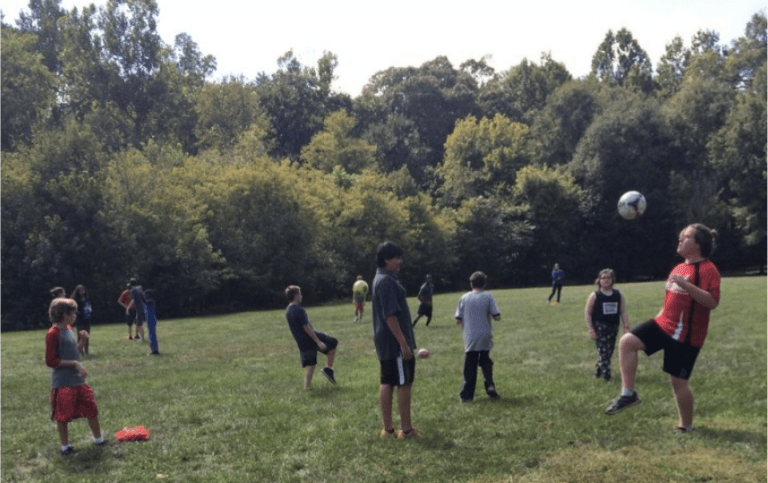D&D at Fairhaven School:
Wired for Play and Story
This is the second installment in a series of posts about Dungeons & Dragons at Fairhaven School. You can read the first installment here.
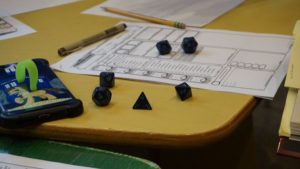
A little over a year ago KQED published an article titled “How ‘Dungeons & Dragons’ Primes Students for Interdisciplinary Learning, Including STEM”, which includes the story of a D&D club at a public high school that substantially outperformed their district on a standardized test. Paul Darvasi writes:
“For Kade Wells, the teacher who runs the club at Davis Ninth Grade School outside Houston, the answer is simple: ‘Playing Dungeons & Dragons makes you smarter.’
The declaration is bold, but the scholarly support and anecdotal evidence is compelling. Studies have shown that the highly social and collaborative nature of the popular fantasy role-playing game cultivates a range of social-emotional skills, which can lay the foundation for improved learning.”
That passage sounded so familiar to me because “play makes you smarter” has been one of our mantras at Fairhaven for years. As a school that lets students do what they want with their time, we see children play all day long. The school does not limit or structure their play. For 22 years, we have seen these students grow up to have strong problem solving and social-emotional skills that empower them to be successful young adults.
“Children are biologically designed to educate themselves. They do it joyfully through play, questioning and exploration. We don’t need to educate children. All we need to do is provide the conditions that would allow them to educate themselves.” – Peter Gray, Ph.D.
Simply put, we as humans are wired to learn through play and story, two things role playing games merge perfectly together. It helps us make sense of the world and prepare for what’s next. D&D, of course, is not the only role playing game. At Fairhaven School, we see children of all ages play various role playing games throughout the day.
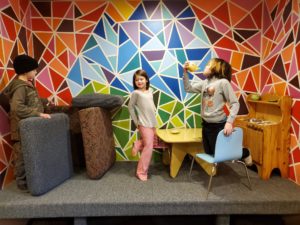
One example we often see with younger students is “House” or “Family”, a simple scenario where one child might play the role of the mom, another child could be the baby, and if a certain staff member gets invited, he may take the role of Grandpa Bobert. The stakes are pretty low, but it provides a lot of opportunity for a child to practice social skills and start the path of mimicking and practicing the traits of a responsible adult. Nobody needs to teach them this game; they just make it up on their own. They are wired to play games like this as part of their path to growing up.
On the flip side, a younger student may also create a version of “The Floor is Lava”. While they may not take on the role of anybody new, they are simulating a dangerous environment to navigate and overcome. Instantly the room they are in transforms into a high stakes puzzle of how to get from one place to the next. Again, nobody needs to teach them this game. Like a couple of lion cubs pouncing on each other, some games just come naturally because we have evolved to learn and grow that way.
As children get older, their play evolves to keep up with the increasing complexity they yearn for. Like a story needs conflict to be entertaining, the games they play must have challenge. Facing these challenges, they instinctively learn problem solving skills that can be applied in other aspects of life.
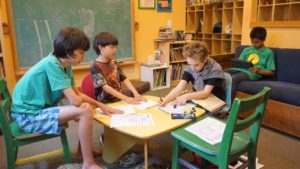
While students may decide to move on from “make believe” games like “House” or “School” as they get older, Dungeons & Dragons provides a platform to keep role playing interesting. Through the Player’s Handbook and Dungeon Master’s Guide, there are a set of ground rules for everyone to follow so they can focus on the content of the game, rather than bickering about who gets to do what and when. It’s essentially a continuation of what they were doing as young kids, with an opportunity to explore deeper themes and more complex social and ethical issues.
It’s not always as simple as a group of adventurers go slay a dragon and save a village. The best games involve tough choices, picking sides, and coming to grips with ethical dilemmas. Would you sacrifice a few to save thousands? Would you kill an evil cult leader if it meant his group of cultists might rise up and retaliate, or would you capture him and risk the cultists trying to get him back? You’ve toppled an evil empire and need to help establish a new government. What form of government do you try to replace it with?
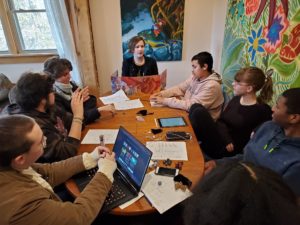
Currently a group of teenagers are playing a campaign where they each play a character who has a flaw related to one of the “seven deadly sins”. Nobody is forcing them to learn about various vices and virtues; they just naturally want to explore these kind of themes as they get closer to adulthood. A common question a teenager will ask is, “what kind of person do I want to be?” D&D and role playing is a great tool to find out, fitting in perfectly with what they’re wired to do.
I’ve still only scratched the surface when it comes to D&D at Fairhaven School. If you would like to stay up to date with this thread of posts and have not done so already, please subscribe down below.
Richard Morris
Fairhaven School Staff
